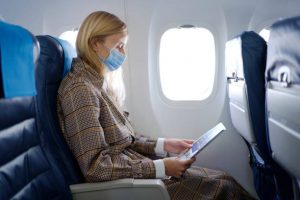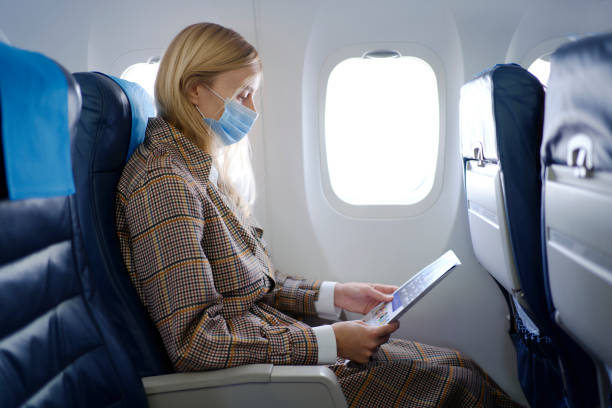Many people enjoy traveling. It is always fun and adventurous. Whether we are traveling for business, vacation, or any other reason, we always want to make our journey and stay enjoyable. As well as remaining healthy throughout.
However, certain problems are likely to emerge during a journey, and one of the most common issues is travel-related diseases.
What are travel-related diseases? What are the common travel-related illnesses, and how can you prevent them? We will discuss these shortly; make sure you learn something beneficial today.
Travel Related Diseases
Travel-related diseases are certain diseases that are most likely to affect travelers because of their travel. This includes diseases that occur both during the journey and in the course of their stay.
By the way, there is a branch of medicine called travel medicine or emporiatrics, which deals with the prevention and management of travel-related diseases among international travelers.
11 Most Common Travel Related Illnesses And How To Prevent Them

Below are eleven of the most common travel-related illnesses that occur worldwide, as well as some tips on how to avoid them.
1. Traveler’s diarrhea
This is, without doubt, the most common travel-related illness around. Many travelers that are traveling to developing countries usually have these diseases.
Traveler’s diarrhea is an illness that affects the digestive system, which causes loose stools and abdominal cramps.
It is caused by consuming contaminated food or water during the course of a trip. Symptoms include dehydration bloating, frequent watery stooling, and vomiting.
How to prevent traveler’s diarrhea:
- Use a hand sanitizer to wash your hands at all times.
- Drink water from packaged water bottles. Or boil water for drinking and even brushing your teeth.
- Wash and properly cook all food items thoroughly.
2. Dengue Fever
Dengue fever is a mosquito-borne infection that is common among travelers going to India, Southeast Asia, and Africa. It is caused by mosquito bites, and symptoms include nose bleeding, fever headache.
There is no vaccine available for dengue fever, so prevention is making use of insect repellent, mosquito nets, and covering up while sleeping.
3. Typhoid
Typhoid is a common travel-related illness that occurs mainly in India and South Asia.
It is also caused by eating or drinking contaminated foods or water.
The symptoms of typhoid include fever, stomach pain, headache, diarrhea or constipation, cough, and loss of appetite, rashes, and weakness.
This disease can be prevented mainly by getting a typhoid vaccine before traveling.
Travelers who eat foods or drink beverages contaminated with these bacteria can then get sick.
4. Measles
Measles is a highly contagious disease characterized by redness and itching of the skin. The disease can be easily spread through contact with mucous or saliva from an infected person.
If you are traveling abroad with your child, especially infants from 6 to 11 months old, they need 1 dose of measles vaccine before traveling.
However, children 12 months and older ought to receive 2 doses before travel. Nonetheless, you should always consult a pediatrician before travelling to make sure your children are protected.
5. Tuberculosis
Tuberculosis is a common travel-related illness present mainly among travelers in Asia, Sub-Saharan Africa, and South and Central America.
Tuberculosis is also easily contracted through coughing, sneezing, and even speaking. It attacks the respiratory system and has symptoms that include persistent coughing, loss of appetite, coughing out blood, fever, and nighttime sweating.
The major prevention tip is to get vaccinated with the BCG vaccine.
6. Skin disorders
Skin disorders like sunburn, rashes, and skin cracking due to exposure to heat, humidity, or insect bites are problems for travelers. Traveling to the tropics in Africa or cold places like Russia can cause skin disorders among travelers due to the weather.
Although they may not be all that serious, they can cause great discomfort and ruin your trip.
Protect your skin from harsh weather by following the necessary health tips to prevent sunburn.
7. Air travel disorders
These are diseases that are associated with air travel, and they include jet lag, ear disorders due to cabin pressure changes, and thrombophlebitis, which is blood clots in the legs.
People with certain health risks should avoid air travel:
– Coronary artery bypass
– Myocardial infarction
– Hypertension
– Seizures etc.
To prevent thrombophlebitis, walking and proper hydration is required to avoid this problem, especially after prolonged sitting. One way to ensure you are sufficiently hydrated before travel is a Myers Cocktail in Albuquerque. This immune-boosting blend of vitamins and nutrients is combined with hydrating IV fluids, ensuring your body is fueled for travel.
8. Malaria
Malaria is arguably one of the most popular travel-related diseases. It is common in Africa, Central and South America, and The Caribbean.
Like other insect-borne diseases, malaria is caused by the female anopheles mosquito, which symptoms manifest after about 3 weeks. Symptoms include nausea, weakness, and fever.
It can be prevented by taking an antimalarial drug before embarking on the journey or taking the necessary precautions discussed under dengue fever.
9. Norovirus infection
This disease is popularly known as the vomiting bug in the UK. It is a major cause of viral gastroenteritis and also a common travel-related disease.
It is transmitted by contact with foods and water that have the virus present in them. Symptoms include nausea, vomiting, diarrhea, and loss of taste.
How to prevent it
Hand washing with soap and water can help reduce the transmission of the virus. Also, sanitizers (with alcohol above 60%) are effective and should be used regularly.
10. Influenza
Influenza infection during travel is a common phenomenon. Standing in close proximity with infected persons could expose you to such flu.
CDC recommends that everyone six months and older get a flu vaccine yearly. Everyone 6 months and older should get a flu vaccine yearly,
11. COVID-19
Since it emerged in late 2019, coronavirus has been a mainstay and massively affected travels. COVID-19 is deadly, highly contagious disease that is likely to spread whenever you travel.
You can prevent COVID-19 by wearing a nose mask, avoid touching your face, and washing your hands with soap. In addition, getting a COVID vaccine can help you stay safe while you travel.
Bottom Line
To ensure that you have an enjoyable trip, it is important to know the most common travel related illnesses as well as how to prevent them.








